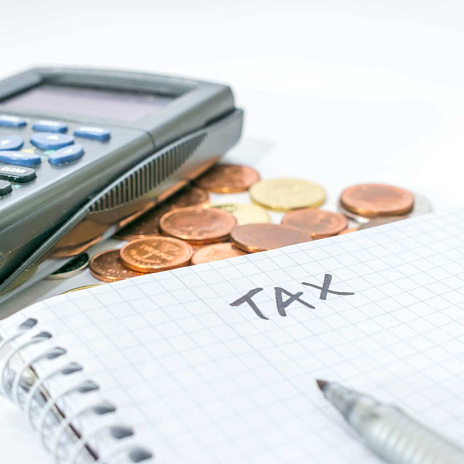
Tax Messenger
Individual permit to export goods in light of retaliatory export restrictions imposed by Russia
30.08.2024
Many cross-border traders face the need to ship goods out of the EAEU for a variety of reasons, such as equipment repairs, sales to foreign counterparties, and so on.
However, for over two years now Government Decree No. 311 of 09.03.2022 (“Government Decree No. 311”) has imposed a ban on the export of a large range of goods (currently over 200 items). That ban is in place until 31 December 2025.
Which goods are banned from export?
The export ban covers goods pertaining to a wide range of industries, such as industrial and telecommunications equipment, agricultural machinery, and many others.
A detailed list of goods is contained in Appendix No. 1 to Government Decree No. 311 in the form of a table stating the EAEU TN VED (product nomenclature) code and the product description. We should point out that only the EAEU TN VED code is significant for the purposes of applying the list; the product description is provided for the sake of convenience.
Are there exceptions?
Government Decree No. 311 provides a fairly extensive list of exclusions, according to which the export ban does not apply to:
- Goods exported to EAEU member states
- Goods originating in the territory of Russia which are accompanied by an ST-1 certificate of origin or another certificate confirming the Russian origin of the goods
- Goods produced in the territory of special economic zones and free warehouses
- Goods taken out by individuals for their personal use
- Goods taken out as stores of a vessel or aircraft
- Goods being taken out of Russia which were previously brought in under an ATA carnet, and others
If the above exclusions do not apply, there is a scenario under which goods listed in Appendix No. 1 to Government Decree No. 311 can be exported to third-party countries.
What is a Temporary Permit?
According to clause 1.1 of Government Decree No. 311, cross-border traders can apply for a temporary individual permit to export a limited quantity of goods (“Temporary Permit”).
A Temporary Permit is issued to an exporter by decision of the Chairman, First Deputy Chairman or Deputy Chairman of the Government of Russia (in accordance with the division of responsibilities) on the basis of recommendations from the Ministry of Industry and Trade of Russia.
We should point out that the procedure and timeframe for the receipt of a Temporary Permit are not currently laid down in law, which may also give rise to questions or uncertainty among cross-border traders.
How to obtain a Temporary Permit – our experience with clients
Obtaining a Temporary Permit involves multiple stages (set out below), and our experience shows that it takes 3 to 4 months.
- A reasoned application with a legal position is submitted to the Ministry of Industry and Trade.
- The reasoned application is considered by the Department for International Cooperation and Licensing in the Area of Foreign Trade of the Ministry of Industry and Trade.
- The application is referred for approval by relevant departments of the Ministry of Industry and Trade.
- A Report with an appendix (detailing the characteristics of the product requested for export), addressed to the Chairman of the Government, is drafted and sent to competent federal executive bodies for approval.
- The Report approved by the federal executive bodies is endorsed by departments of the Ministry of Industry and Trade and the Report is signed at the level of the Ministry of Industry and Trade and then forwarded to the Government (for the receipt of a resolution from the Deputy Chairman of the Government / the Minister of Industry and Trade of Russia). The Report with the appendix is sent to the Federal Customs Service (the details of the resolution are entered by the Consignor / Exporter in Box 44 of the goods declaration).
What needs to be considered?
Given that the procedure for obtaining a Temporary Permit is not laid down in law, our experience indicates that it is essential to consider the following in dealing with the Ministry of Industry and Trade:
- When considering the application, the Ministry of Industry and Trade may make additional inquiries to verify that there is good reason for the goods to be exported. For example, it may inquire whether talks were held with Russian enterprises or potential buyers from EAEU states on purchasing the goods.
- Given that the timeframes are not laid down in law, inquiries of this kind from the Ministry of Industry and Trade should be answered as promptly as possible.
- When preparing an application and responses to inquiries from the Ministry of Industry and Trade, it is essential to provide relevant and specific information and to take a thorough approach to preparing the application. This includes providing detailed information on the goods concerned, including identifying marks, country of destination / origin, and quantity, and explaining why they need to be exported.
It should also be noted that, before applying to the Ministry of Industry and Trade, a preliminary check should be made as to whether it is necessary to obtain clarifications/positions from other state bodies. One of our clients had a situation where goods had already been sold to a foreign counterparty but were still physically located in Russia. In light of this, an application was first made to the Federal Customs Service to confirm that the foreign entity could act as the declarant. This is extremely important given that details of the Temporary Permit have to be provided for customs clearance.
In our view, given the lack of any specific regulations governing the receipt of a Temporary Permit, it is essential to enter into active communication with the Ministry of Industry and Trade and to provide as detailed explanations as possible of the reasons for exporting goods as well as detailed information about the goods themselves.
How can we help?
- Assessing the applicability of export bans and restrictions established by Government Decrees No. 311, No. 312 and No. 313 of 09.03.2022
- Lobbying your company’s interests in terms of providing practical support in seeking amendments to Government Decrees No. 311, No. 312 and No. 313 of 09.03.2022
- Providing practical support in obtaining an individual temporary permit to export goods in accordance with Government Decree No. 311
- Providing practical support in obtaining authorization documents needed to export goods from Russia
Authors

Ksenia Sizova
B1 Director
Global Trade and Customs, Tax, Law and Business Support
Contact
.jpg)
Aliya Khakimova
B1 Advanced staff
Global Trade and Customs, Tax, Law and Business Support
Contact
OTHER PUBLICATIONS
View all.jpg)
The State Duma has passed a law on the ratification of the double taxation treaty between Russia and the UAE in the third reading
On 24 June, the State Duma of the RF passed a law on the ratification of the Double Taxation Treaty between Russia and the UAE ("DTT") in the third reading. Further steps required for the DTT to be ratified include approval by the Federation Council, signature by the President of Russia and official publication.
25.06.2025

Tax Monitoring: changes in AIS "Nalog-3" services
On 2 June 2025 the Federal Tax Service of Russia published both changes to existing AIS “Nalog-3” services and a number of new services for tax monitoring (“TM”) purposes which must be implemented by tax monitoring participants by 02.06.2026.
10.06.2025
.jpg)
Pillar 2: "Second Wind"
The provisions of Federal Law No. 479-FZ of 26.12.2024, which introduced a duty on income received for the provision of Internet advertising services (“the advertising dutyduty”), take effect from 1 April 2025. However, the law does not fully address the mechanisms for the calculation and payment of the advertising duty or for monitoring the correct and timely payment of the duty.
30.05.2025

The advertising duty: detailed calculation and payment rules proposed
The provisions of Federal Law No. 479-FZ of 26.12.2024, which introduced a duty on income received for the provision of Internet advertising services (“the advertising dutyduty”), take effect from 1 April 2025. However, the law does not fully address the mechanisms for the calculation and payment of the advertising duty or for monitoring the correct and timely payment of the duty.
28.03.2025

Advertising charge introduced
The Federation Council of Russia has approved a bill amending Federal Law No. 38-FZ of 13 March 2006 “Concerning Advertising”. The Bill introduces a charge for internet advertising. The new rules are expected to come into force from 1 April 2025.
23.12.2024
 (2).png)
New format approved for notifications of controlled transactions
On 20 August 2024 a draft order of the Federal Tax Service on amendments to Order No. MMV-7-13/249@ of the FTS of 07.05.2018 “Concerning Approval of the Form of a Notification of Controlled Transactions…” (“the Draft”) was published on the federal portal of draft laws and regulations.
24.09.2024

Individual permit to export goods in light of retaliatory export restrictions imposed by Russia
Many cross-border traders face the need to ship goods out of the EAEU for a variety of reasons, such as equipment repairs, sales to foreign counterparties, and so on. However, for over two years now Government Decree No. 311 of 09.03.2022 has imposed a ban on the export of a large range of goods (currently over 200 items). That ban is in place until 31 December 2025.
30.08.2024

The deadline for filing Notifications of Membership of MNE Groups for 2023 is imminent
We would like to draw your attention to the fact that the deadline for submitting Notifications of Membership of a Multinational Enterprise Group (MNE Group) for 2023 expires on 31 August 2024 for MNE groups whose fiscal year coincides with the calendar year.
29.08.2024
